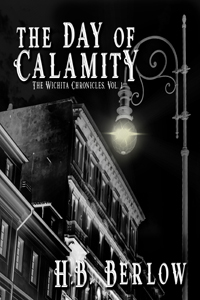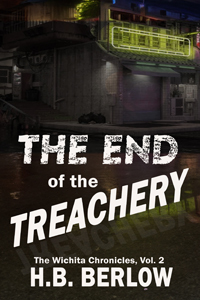PLOTTING IN A SERIES
Writers tell stories. That’s what we do. How we do it are dictated by personal preference, the genre, and whether or not the book is part of a series. While there aren’t cliffhangers, per se, there can be elements that tease something that may happen in the next book and therefore engage the reader.
My latest series, The Wichita Chronicles, involves the Jewish private detective, Harold Bergman, whose experiences as a former police officer and veteran of World War II inform his business dealings. His religion is a large part of his persona and, at times, cases have a moral implication.

The first book, The Day of Calamity, gives us an introduction to the man, his surroundings, and cast of characters that are part of his daily life. There are two cases he is working on that cross each other. Whereas they are separate in nature, there are elements in each that are parallel or complimentary. Book Two, The End of the Treachery, also contains two cases. Stylistically, it is very similar in terms of two cases being investigated at the same time. There is more thought as to the nature of the cases and how they impact Harold’s life decisions. The secondary characters are well-established and have already become part of the landscape.

The third as-yet unpublished book takes a different approach to the cases. As the nature of the investigations has been established as a tool to help Harold navigate the challenges of life, the plotting has become more focused. There are still two cases; however, one is the first half of the book and the other is the second. I am not certain how much of a conscious decision this was so much as a natural progression.
The fourth installment revolves solely upon one case. The moral imperative of that case brings Harold face to face with his biggest religious decisions. It was always my intention of using the hardboiled genre as a way to follow and develop and interesting and atypical character for such a genre. Harold Bergman is a man who no longer feels comfortable with the absolute attributes of law and order as characterized by the police department nor can he fully understand evil and darkness after serving in the war despite his passionate hold on his religion.
This development in plotting will hopefully keep the series from becoming formulaic. The main character is nothing like many of those found in crime novels nor is he so eccentric as to be cartoonish in nature. As with all of us, life presents situations and circumstances that force us to accept or challenge our belief systems. If I can continue to develop the plotting in such a fashion, I will prevent both the reader, and myself, from becoming bored.



